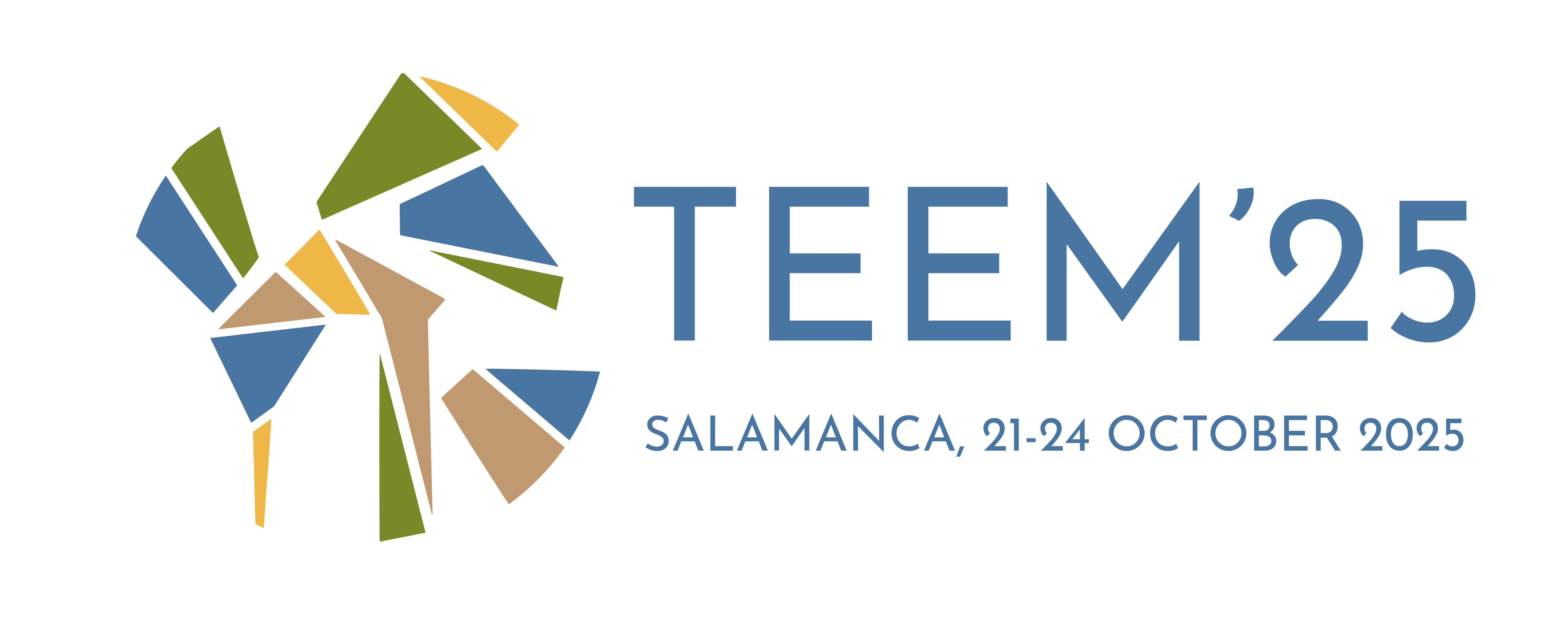The track on Smart Learning within the 2025 International Conference Technological Ecosystems for Enhancing Multiculturality (TEEM’25) aims to provide a forum for researchers, professionals and companies for the presentation and discussion on the application to learning of the advances in Artificial Intelligence in the broadest sense. The main objective is to know how intelligent systems impact human learning from different points of view. To this end, in this track we promote innovative ideas, theories, models, approaches, technologies, systems, projects, best practices, case studies, products, transference experiences and ethical studies in the area of smart learning. Submissions should present empirical and/or theoretical advances in smart platforms, smart analytics, smart tutoring, smart evaluation, smart strategies, collaborative smart learning, modelling for smart learning, smart interfaces, smart spaces, ethical and legal considerations in smart learning environments, syllabus for smart learning and smart conversational systems applied to learning. All submissions will be subject to peer-review.
Topics
- Smart Learning platforms: platforms for adaptive and personalized learning
- Smart Learning analysis: Learning Analytics, Educational Data Mining for Smart Learning
- Smart Learning tutoring: learning activity generation, problem generation and selection, feedback generation.
- Smart Learning evaluation: automatic evaluation, automatic feedback, learning style assessment.
- Smart Learning strategies: instructional design for Smart Learning, learning activity design, gamification, educational games.
- Collaborative Smart Learning: collaborative platforms for learning, social networks.
- Modelling for Smart Learning: domain models, student models, knowledge models and representation, community models, ontologies for Smart Learning.
- Smart interfaces for learning: virtual and augmented reality, natural language processing and speech technologies, tangible interfaces and wearables.
- Smart spaces: smart classrooms, smart universities, smart schools, ubiquitous learning.
- Ethical and legal considerations in Smart Learning environments: students, teachers, educational institutions, governments, companies.
- Syllabus for Smart Learning: educational offer design, students active role, socio/economic perspective integration, metrics for continuous improvement.
- Smart conversational systems: Intelligent assistants applied to education. Chatbots and conversational tutors in educational environments. Automatic generation of educational content and personalization with generative AI.
Track Scientific Committee
Alejandro Rabasa Dolado, Miguel Hernández University, Spain
Antonio Fernández Martínez , University of Almería, Spain
Antonio Jimeno Morenilla, University of Alicante, Spain
Carina González González, University of La Laguna, Spain
Daniel Fidel Loredo Luque, Universidad del Noreste, Mexico
David López Álvarez, Polytechnic University of Catalonia, Spain
Faraón Llorens Largo, University of Alicante, Spain
Francisco Fernández Carrasco, University of Alicante, Spain
Jaime Alfredo Mariano Torres, Universidad del Noreste A.C., México
Josep Petchamé, La Salle. Ramon Llull University, spain
Luisa Fernanda Gutiérrez Garza, Universidad del Noreste, Mexico
Mireia Luisa Sempere Tortosa, University of Alicante, Spain
Óscar Martínez Bonastre, Miguel Hernández University, Spain
Patricia Compañ Rosique, University of Alicante
CHAIRS:

Rafael Molina Carmona
Universidad de Alicante, Spain

Carlos Villagrá Arnedo
Universidad de Alicante, Spain

Daniel Amo Filvà
La Salle – Universitat Ramon Llull, Spain
